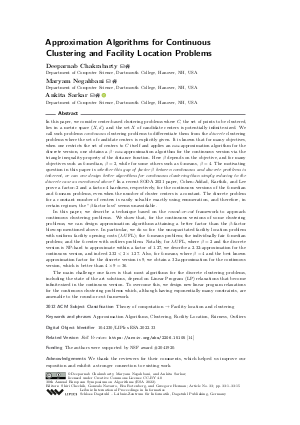LIPIcs.ESA.2022.33.pdf
- Filesize: 0.81 MB
- 15 pages

 Creative Commons Attribution 4.0 International license
Creative Commons Attribution 4.0 International license





































Feedback for Dagstuhl Publishing